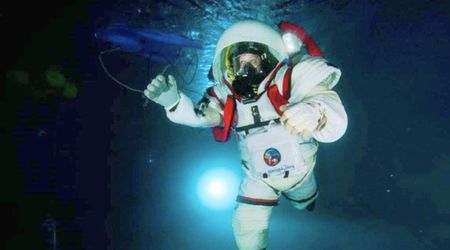NASA astronaut explained 'dramatic' feeling of returning to Earth from space: 'It is unsettling'

Throughout his career as a NASA astronaut from 1990 to 2005, Leroy Chiao went on four space missions and that gave him memories of a lifetime. He was on the space shuttle three times and was the co-pilot of a Russian Soyuz spacecraft to the International Space Station. In an older conversation with Space.com, Chiao explained what an astronaut feels in space and while returning to Earth. He now understands the toll living away from the home planet takes on the mind and how extraordinary one feels returning to their home from space.

For Chiao, the journey into space was exhausting in itself, as the acceleration levels tired out the body, making breathing difficult. During the main engine cutoff (MECO), the body immediately felt weightless, and he described how the brain messed up his balance systems. The body would get busy adapting, expelling water continuously due to gravity not pushing it down. However, in a week’s time, astronauts get the hang of working in an environment with no gravity. He also exclaimed how the Earth would start to seem ordinary.

“The food, totally unremarkable on the ground, seems to be delicious; I suspect your brain knows that you need to eat to stay healthy, and fools you in this regard,” he stated. As the duration stretched in space, routine work of observing the planet and maintaining records became the focus. He also confirmed the biggest question of whether astronomers feel homesick in space; the answer is ‘yes.’

“Sometime around the three-to-four-month point, you start thinking that you wouldn't mind going home,” stated Chiao. However, he was quick to address that the feeling soon takes a backseat as astronauts are true to their sense of the mission. They don't let such feelings bring them down, as they are always psychologically ready to take on the challenge.

Chiao also talked about the high hopes built up around the return date and the anticipation built for the replacement crew. "Even after a ten-to-fourteen-day mission to space, the return is dramatic," he shared. "Your balance system is turned upside down, and you feel very dizzy. When you stand up for the first time, you feel about five times heavier than you expect. All of this can be unsettling, and nausea is not unusual." He added that the duration of the mission determines how long an astronaut's body will take to return to normalcy. "After a long-duration flight of six or more months, the symptoms are somewhat more intense. If you've been on a short flight, you feel better after a day or two. But after a long flight, it usually takes a week, or several, before you feel like you're back to normal."
Once back home, the feeling of familiarity swept over the astronauts as friends and family surrounded them. They felt the success of their mission back on land, and once helped out of the return shuttle, the focus was on recuperation. Chiao also addressed the relationship that astronauts have with space, if they ever miss being up there in the emptiness. Chiao did miss space after short flights and wanted to get back, but a long flight would linger on like “eating a big, satisfying meal.”









